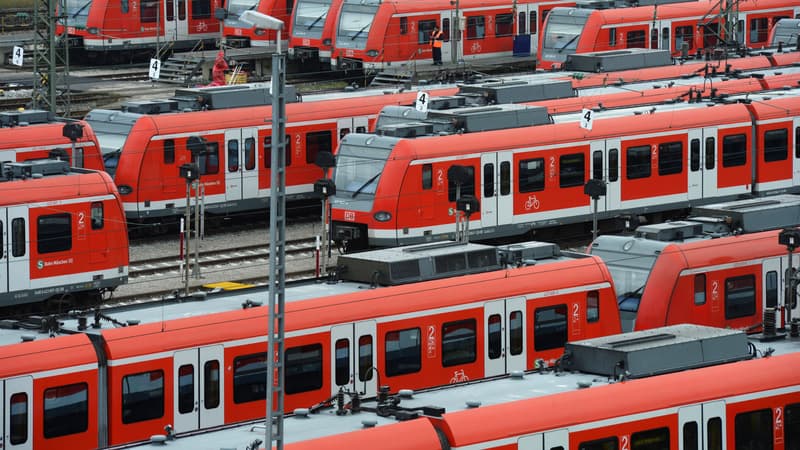To encourage the French to use public transport more, and in particular the train, Emmanuel Macron wants France to follow the model of Germany. This was stated by the head of state in the interview with the youtuber Hugo Travers.
How does the German “pass” work? From May 1, for €49/month, you can use all public transport (metro, tram, bus, etc.) in all cities, as well as regional trains. Holders of this Deutschlandticket can even cross Germany, obviously not as fast as the main trains, but at an unbeatable price.
In Germany, 1 in 7 inhabitants has already subscribed to this subscription
With this pass, both of you will be able to go to your workplace and then take advantage of it on weekends or during your vacations to go wherever you want in the country. Obviously, at this price, public transport managers will be harmed. The forecast deficit (3,000 million euros) is covered 50% by the State and 50% by the Länder (German regions).
Three months after its launch, this pass has already attracted eleven million travelers, that is, one in seven inhabitants, of whom around six million already had a local pass, for which a large part paid more. The other five million were more occasional users. The other side of the coin, during holidays and weekends, the trains are often crowded. This affects comfort and punctuality, which were no longer great on the German rail network.
Furthermore, according to some experts, the Deutschlandticket has only convinced a limited number of drivers to reduce the use of their car. However, it is still a bit early to say if CO2 emissions will decrease thanks to this pass. Furthermore, it is one of the few measures taken by your government that the majority of Germans approve of.
To do the same in France would require convincing several hundred different communities.
Also in France the idea attracted public opinion. But the State does not really intervene in this matter. In the cities, public transport is the responsibility of the municipalities which, in most agglomerations, pool their resources. This means that to introduce a valid pass equivalent to the German model throughout France, 330 different managers would need to be convinced. It’s not really obvious.
But even a version limited to regional trains will not be easy, since the thirteen regions now manage their own TER network with their own pricing rules. Convincing them all to join will be all the more difficult as regional trains generate huge losses. The figures vary according to the fare policy but it is considered that the passengers of a regional train pay only 20% of the real cost of their trip. For its part, the State pays money to the regions to encourage them to cover this deficit.
For the next five years, the Ministry of Transport announced a few months ago that an endowment of 8,600 million euros would be dedicated to financing projects dedicated to mobility in the regions. What matters in the negotiation is that Clément Beaune will have to commit to the regions to achieve the pass in French version desired by Emmanuel Macron.
Source: BFM TV


